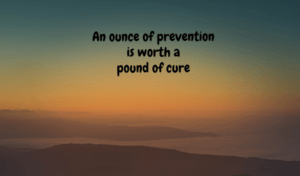Unfortunately, many women view menopause as the end of their good life and the start of a slide into old age.
For some women, going through menopause is a most unpleasant time. Technically, we only know menopause has occurred retrospectively. It is defined as the absence of a menstrual period for 12 consecutive months.
The time leading up to that date is called perimenopause. It may start in your forties. For some women, perimenopause can last for a number of years and symptoms may continue on past menopause. During this time, hormone levels fluctuate and the menstrual cycle can become erratic.
Menopause is a time of transition
It doesn’t have to be all bad and it certainly doesn’t mean your life is over. It is a normal part of the aging process and not something we need to be fearful or ashamed of. There may be some sadness as you acknowledge the end of your reproductive years but this will pass if you are open to exploring a new purpose in your life.
In fact, menopause can mark the start of a wonderful new era. You will have new opportunities that your experience, wisdom and hard-earned resources enable. It can be a time of freedom (no more periods) and of stepping into your power. You might find yourself less concerned with what others think of you (thanks to a decline in oestrogen) and more inclined to say no to those things that don’t bring you joy.
If you are interested in learning more about this time of life, you might like to read The Slow Moon Climbs.
Remember to be grateful for making it this far.
Preparing for menopause
As a consequence of the fluctuation of hormones in the lead up to your last period, some women will experience symptoms such as hot flushes, heavier bleeding, irregular cycles, vaginal dryness, insomnia, irritability, depression, poor concentration and more….not a lot of fun!
For many women, these symptoms will be non-existent or only a minor irritation but for others, they can be very debilitating and really impact their quality of life and ability to function on a day-to-day basis.
To achieve this transition successfully and sail gracefully into menopause, it is wise to prepare for this mid-stage of your life.
The healthier you are in your forties, the greater your chances of minimal menopausal symptoms. (But, you know what…it’s never too late to make some changes).
What happens after your last period?
Once you have had your last period you no longer have to worry about heavy bleeding, PMS or menstrual pain (hooray!).
However, you may experience one or more menopausal symptoms. If you are taking care of your health (or very lucky) your symptoms may be mild or short-lived.
Symptoms may include:
- hot flushes and/or night sweats
- insomnia
- mood changes
- brain fog
- weight gain
- vaginal dryness
All these symptoms are likely driven by the loss of beneficial progesterone and oestrogen. It takes time for your brain (the master controller) to recalibrate to the new normal.
What else can impact menopausal symptoms?
Often it is not just changing hormones contributing to your symptoms.
For many, this is an extremely challenging time in a woman’s life. You may have teenage children, elderly parents and a demanding job. All these extra stressors in your life can exacerbate your symptoms. (It is believed that, for some women, a stressful moment will cause a release of noradrenaline which then triggers the hot flush).
Sometimes, other little health issues come up (such as thyroid conditions or digestive problems). These may have been there for a while but menopause seems to bring them out. Menopause can be the straw that broke the camel’s back! This is part of the reason why every woman is different and needs to be treated differently.
The good news is you can do a lot to help yourself through.
What can you do to reduce your menopausal symptoms?
The first place to start is to ensure you are eating a supportive diet and following a healthy lifestyle.
Start with the following:
- Make sure your diet includes foods rich in phyto-oestrogens such as tofu and flaxseed and avoids coffee, alcohol, and very spicy foods. This can help reduce the intensity or frequency of hot flushes.
- A lifestyle that incorporates some relaxation and exercise has also been shown to help in reducing symptoms. In particular paced breathing, yoga, tai chi, and meditation have been shown to reduce the incidence and severity of hot flushes. It’s all about balancing your nervous system and toning your vagus nerve.
- Maintain a healthy weight and don’t let the kilos creep on. (Those women with more central weight tend to report more hot flushes).
- Revisit your sleep habits and work on getting good quality sleep to take care of your nervous system.
What can your naturopath do to reduce your menopausal symptoms?
Appropriately prescribed nutritional or herbal supplements help to reduce the symptoms of menopause and restore sleep, mood, cognition and reduce hot flushes. If other factors such as stress, thyroid or other health issues are at play, these need to be considered also.
My naturopathic prescription for you will depend on your unique presentation. This includes taking into account any prescription medications you might be taking.
If you haven’t done so earlier, menopause is the time to make the necessary diet and lifestyle changes to ensure you have the health and vitality to enjoy life to the full as you get older (I know, we may not want to admit it but getting old is inevitable if we are lucky so let’s embrace it).
So if you, or someone close to you, is starting to feel the effects of a mid-life transition it is not necessary to suffer in silence. There are many things you can do to make life easier and prepare yourself for the next stage of your life.
But as always, before taking any nutritional or herbal medicines I encourage you to seek professional advice from a naturopath or herbalist to ensure you are getting the best possible support for your particular health needs, taking into account any other aspects of your health.





